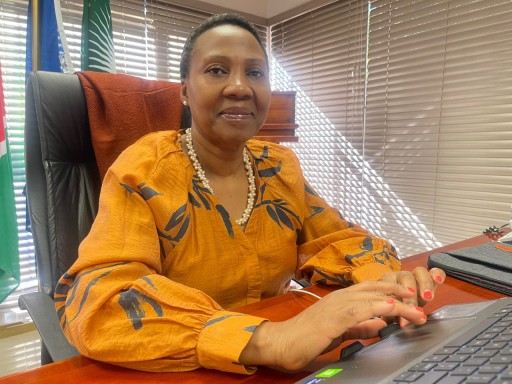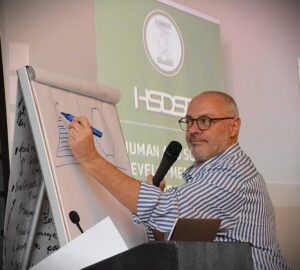Moses Magadza
The Secretary General of the SADC Parliamentary Forum, Ms Boemo Sekgoma, has called for collective action to combat gender-based violence across the SADC region.
She made the call in a statement released on November 25, 2024, as the world marked the International Day for the Elimination of Violence Against Women.
“As we observe the International Day for the Elimination of Violence Against Women, we stand united in our commitment to end all forms of violence against women and girls in the Southern African Development Community (SADC) and beyond,” she said.
She noted that the International Day for the Elimination of Violence Against Women also marked the beginning of 16 days of activism against gender-based violence, “a time to not only reflect on the pervasive issue of violence but also to mobilise our collective efforts towards change”.
The SG said besides being a violation of human rights, violence against women thwarts gender equality and sustainable development.
“It has far-reaching consequences that affect women’s access to Sexual and Reproductive Health and Rights (SRHR) services and commodities, as well as their bodily autonomy and integrity,” she stated.
She added, “The traumatic impacts of violence leave survivors vulnerable, often leading to increased health risks, inadequate access to critical SRHR services, and a devastating cycle of fear, stigma, and isolation.”
Ms Sekgoma called for concerted efforts against violence against women because it prevents women and girls from realising their full potential, hampering their ability to contribute meaningfully to their communities and societies.
More from Africa News 24
She called on national parliaments to take decisive action by allocating funding for the implementation of laws and policies designed to combat the issue.
“It is imperative that we transform our commitments into concrete actions that safeguard the rights and wellbeing of women and girls,” Ms Sekgoma urged.
She argued that ending violence against women was a collective responsibility of all sectors of society.
“Each one of us has a role to play in creating a world where all women and girls can thrive. We must foster an environment where respect, empathy, and active support replace silence and complicity,” she pointed out.
She urged SADC member states to domesticate the SADC Model Law on Gender-Based Violence, and to put in place effective monitoring and evaluation mechanisms to track its implementation.
“We must stand together, shoulder to shoulder, advocating for a society where every woman and girl can live free from violence and fear,” she asserted.
She challenged community leaders, policymakers, educators, and individuals to contribute to challenging and changing the norms that perpetuate violence against women.
She expressed optimism that the International Day for the Elimination of Violence Against Women and the 16 days of activism against gender-based violence would inspire stakeholders to remain committed in the pursuit of justice, equality, and dignity for all.
“Together, we can forge pathways that lead to a future where we all recognise, uphold, and celebrate women’s rights across the SADC region,” she said.












